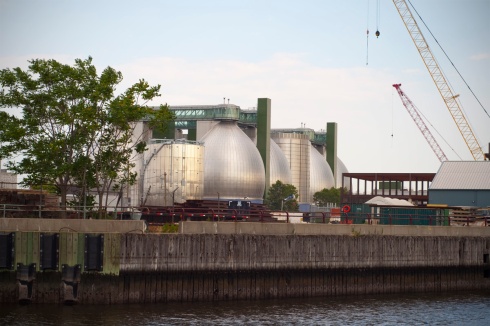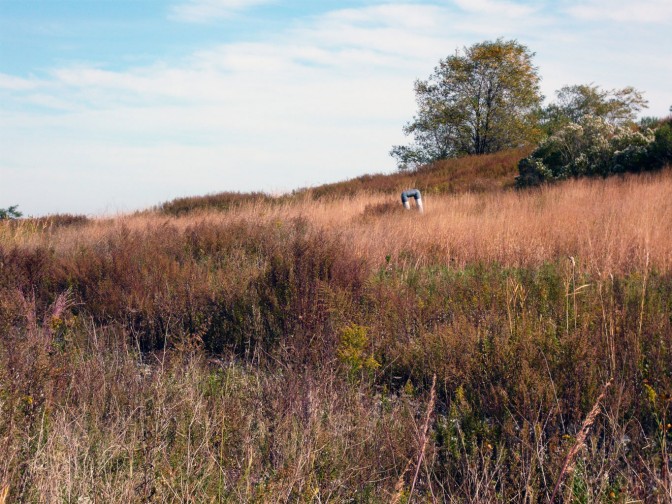Citywide Commercial Organic Diversion
In a bold piece of legislation, New York City will reduce its waste by one third by requiring that, by 2015, restaurants, grocery stores, and other commercial food generators send all of their organic waste, including food scraps, to either a compost facility or an anaerobic digester. The 1.2 million tons of organic waste diverted each year under this new program is no drop in the bucket, it is more than the annual waste produced in Boston, Baltimore, Philadelphia, and D.C. and it will contribute to the goal to double the city’s current recycling rate to 30 percent by 2017. “All eyes are on New York,” said Samantha MacBride, the city’s former deputy director of recycling and now assistant public policy professor at Baruch College. Organic waste recycling, she said, is the “holy grail of sustainable waste management in my view,” as reported by Gotham Gazette.

Newtown Creek Digester Eggs in Greenpoint, photo courtesy of 7 Stops Magazine
New York City has a head start on this program with a pilot program that converts residential and school food waste and organics into clean renewable energy at the anaerobic digester in Greenpoint, Brooklyn. The new bill, sponsored by Councilwoman Deborah Rose of Staten Island, provides the scale necessary to make this process cost effective for businesses and motivate private development of organics processing infrastructure for the New York metropolitan area. After its start as a pilot project in 90 public schools, the organic waste recycling program is now being tested with city agencies, single family homes in the Westerleigh section of Staten Island (where, after only a few months, participation rates are above 50 percent) and in two Manhattan high-rise developments.
“We spend over $85 million a year sending food waste to landfills, so there’s a major cost,” said Ron Gonen, New York City’s deputy commissioner for recycling and sustainability, who heads up the composting program. He told Yale environment360 that so far the program is collecting at a pace on the order of “tens of thousands” of tons per year. “It’s growing every day,” said Gonen. “We’re going to continue to expand, in all five boroughs.” By 2014 the program will cover around 100,000 households. In addition to the food waste recycling pilot, the city has partnered with our friends at GrowNYC to begin food scrap collection at green markets throughout the five boroughs. Interested households who are not in the pilot areas for collection can bring their food waste to sites across the city for composting at community gardens and other environmental programs.
By the bill’s extension to the commercial sector, the City expects the residential sector to be better served, lowering disposal fees by circumventing landfills and providing local clean renewable energy generation, local jobs and environmental protection.
Learn more about tours of the Newtown Creek Digester Eggs through Openhousenewyork!




